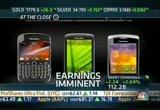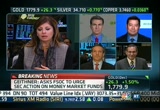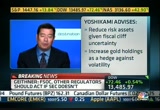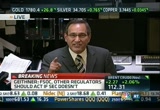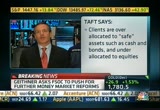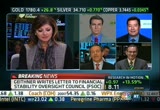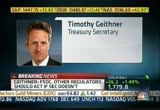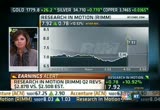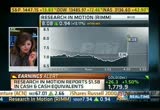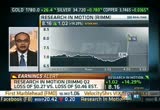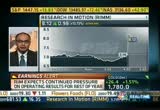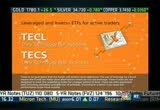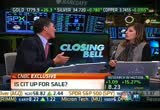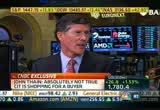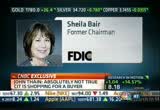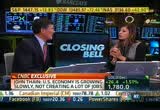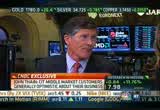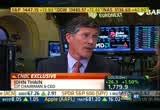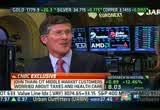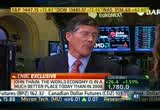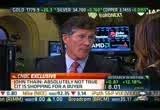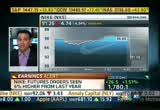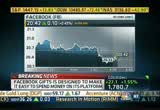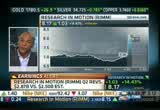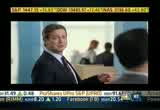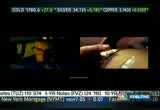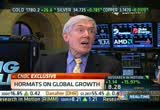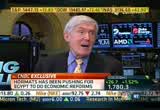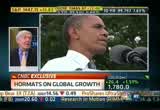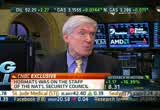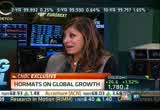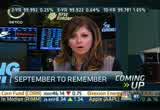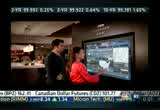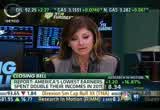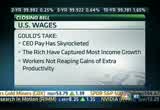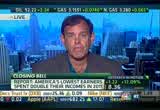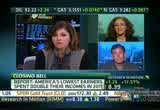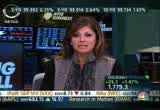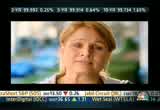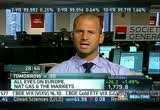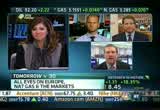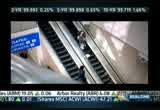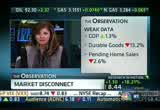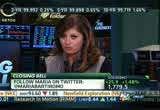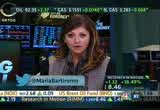tv Closing Bell With Maria Bartiromo CNBC September 27, 2012 4:00pm-5:00pm EDT
4:00 pm
can help this beaten down stock rebound? we've had institutionals buying up the stock recently. the dow jones industrial average off of the best levels but holding on to a double-digit move here. nasdaq also higher. technology one of the bright spots today. 42 points higher on nasdaq. the s&p 500 higher by 14 points at 1447. the rally today certainly taking the dow one day closer to another month of gains. if we manage to stay in the green tomorrow, that means the market would be up 11 out of the last 12 months. keep in mind tomorrow is not just the end of the month, but also the end of the quarter. what should investors brace for as we end the third quarter? we'll bring in our guests. good to see you guys. we've been talking about institutions chasing beta, large
4:01 pm
pools of money. do you buy into that if sn ? do you think that continues? >> we really have seen that. it's been a phenomenon since the market fumbled around the lows in july of this year. it's been across the board. it's been in commodities. it's been in domestic stocks. it's been in international stocks. there's so much cash on the sidelines. anything with price momentum. victory, we got victory. that's continued on. it seems to be holding a trend that will, again, probably get us through at least the end of the quarter. >> are you buying? >> at this juncture, very selectively. we've got a few things we like. otherwise, we're kind of stepping back and watching. >> that's what i'm hearing from a lot of people, michael. very selectively. the economic data doesn't necessarily connect with what's going on in the market. the fundamentals are weak. >> yeah, it's a point you made earlier in an earlier segment that the bottom line is the economy is still very, very weak. i'll tell you, we've been on overweight equities for the last six or nine months.
4:02 pm
we're now starting to pull back some of the risk. yes, the market could rally higher. i don't see the stimulus up as much as i did when everybody didn't believe qe-3 was coming. i think there's more negative potential headlines. we're taking risk off the table right now and hopefully we'll re-enter at a lower position. >> it's interesting. rickntelli, the fiscal cliff keeps coming up. that's one of the biggest issues in terms of keeping businesses from making any real decisions here, putting money to work, and it's also the highlight going into the election. >> it is. i guess the real irony is even if the fiscal cliff didn't exist, the outlook economically, both domestically and globally, is deteriorating. really, it's a bit of a double whammy. i'll go back to what i said the last time we discussed this an hour ago. if you look at the 21 weeks from mid-october to march of 2000 when the nasdaq crashed, in those 21 weeks, the nasdaq
4:03 pm
almost doubled in price and was up 19 of those 21 weeks. so can this market keep going up? yes. if you sell it early, you're not going to make money you would have made? probably. in the end, are you going to know exactly when to get out because the economic fundamentals surely will catch up with stocks. >> i agree with you, rick. john taft, let me ask you about your clients. you've got to put money to work in this environment. how do you do it when we see the fundamentals are not keeping up with some of this market performance? >> it's a real challenge. the private client was tremendously traumatized by the financial crisis and spooked by technology glitches and continuing scandals in the marketplace. they still don't trust that if they put their money in stocks, bonds, mutual funds, it's going to grow in value over time. we've been encouraging them in as many ways as we can to move out of cash, move out of bonds, which they perceive as safe but have their own risks, into at least a benchmark waiting in equities. the problem is all through this year you've had overhanging
4:04 pm
uncertainty in the marketplace. first, u.s. economic growth, china, european sovereign debt crisis. those have been replaced right now by, as you've mentioned, fiscal cliff and debt ceiling negotiations. the investor is confused about where to go, but those investors who stayed in cash missed this rally that we've had this year. they shouldn't make that mistake again. >> are you saying don't stay in cash? you want to get on this train then? don't fight the fed. >> right. it's an old story, but it's a great story. for the private investor, high quality, dividend paying stocks is still the place to go. you get paid while you wait. it's a hedge against inflation. if you're not comfortable with a growth story, move into dividend paying stocks. >> do you change that scenario if dividend taxes go to 43%? >> that's a great question. >> part of the fiscal cliff. >> yeah, but historically, don't forget, dividends have been taxed at ordinary income rates. it's really only an anomaly
4:05 pm
recently that we've had a differential and tax advantage treatment of dividends. we don't think that even if the worst case happens, which we don't expect, dividends stocks are going to trade off in a fiscal cliff scenario. >> all right. we'll leave it there. gentlemen, thank you very much. great to talk with you all. see you soon. thanks, guys. let's go straight to washington. we have some headlines from the treasury secretary. >> that's right. timothy geithner and the newly created financial stability oversight council flexes their muscles now in a letter. geithner saying the sec failed to act on money market fund industry reform last month. the sec was tied up. geithner now writing this letter to members of the fsoc urging them to take action on money market funds. he says, further reform to the money market fund industry are essential for financial stability. also, citing the financial crisis of 2008 and 2009 saying
4:06 pm
that it demonstrated money markets are susceptible to runs and can be a source of financial instability with serious implications for the broader economy. this is a new tactic we're seeing in washington now with the fsoc, which was created by da dodd frank. now able to step in and pick up where the sec left off. it gives the council the authority to address risks to the financial stability if an agency failed to do so. so maria, interesting move here by treasury secretary tim geithner. back to you. >> all right. thank you so much. i want to bring you to breaking news on research in motion. r.i.m. stock on the move. the company reports a loss of 27 cents a share versus an expectation of a loss of 46 cents a chashare. the company still losing money, but it lost a lot less than the expectations. revenue coming in at $2.78 billion. that's also better than estimates. let's get to john ford with the
4:07 pm
latest. >> given what we were expecting, this is actually not as bad. i want to pull out a few more numbers. 7.4 million hand sets sold overall. 130,000 playbooks sold. that's not great. it's a lot better than it was last quarter when it was down near $212. i mentioned earlier on cnbc today. another thing of note, just 60% of revenue was due to hardware. 35% in services. so the share of revenue that r.i.m. is getting from the hardware, which traditionally is their bread and butter, coming way down from where it's been in the past. still have to find the cash balance. it was $2.2 billion last quarter. looks like it was $2.3 billion as of september 1st. it actually inched up a bit. that has got to have analysts happy as well. >> yeah, it's really interesting because just over the last
4:08 pm
couple of weeks, you actually have large pools of capital buying r.i.m. stock. more shares were acquired for the first time by institutions, 19.9 million, than sold oppositions in the june ending quarter. so, yeah, the company still losing money. it looks like it certainly has attracted some value. even though this stock, by the way, was at $150 a share, it is now at $8. it's an extraordinary move here. >> real quick, what r.i.m. is doing here is buying market share. they're sacrificing most of their margin in order to keep a subscriber base there. you've got to take these numbers with a grain of salt because of that. >> all right, john. thanks so much. stay with us. we heard the numbers out of r.i.m. let me ask you what you think of these numbers here, sha. you say one of the key metrics to watch is the cash balance. >> yeah, so the quarter itself
4:09 pm
definitely better than feared. we had thought that there was a possibility of this, frankly, in our preview. everyone was expecting a train wreck, right? it looks like it's less of a train wreck. we're going to have to dig in the balance sheet to figure out how they're able to grow the cash balance. was it through taking down receivables, changes in working capital? it's definitely not operating income, right? they still had an operating loss. >> right. so what do you want to do in terms of investing in r.i.m. here? do you think there's value here, or is the company still quite troubled? >> it's still troubled. i mean, it's a trade, right? i think in the near term, you know, it could rally some more. but longer term, they still got to get back to profitability. at the end of the day, if you're losing money, right, that's not a sustainable business. >> but is this a takeout candidate? you think is attractive for another larger player? >> i think with the market cap
4:10 pm
here, it's still a bit high. i think take out is still difficult. >> good to have you on the program. thanks so much. >> thank you. >> we're going to keep following r.i.m. the stock is trading higher in the extend hours. stick around. we're just getting started in this big hour of the "closing bell." he was one of wall street's most controversial figures during the financial crisis. is cit ceo john thain now trying to complete a major comeback by selling two to a large bank? he joins us exclusively. plus, will research in motion's latest earnings show any sign of life for the blackberry maker, or is it time to hang up on this stock? and a shocking new study may prove mitt romney was right when he said a large number of americans need to take personal responsibility of their lives. it's all ahead on the "closing bell." ♪
4:11 pm
[ male announcer ] introducing a reason to look twice. the entirely new lexus es and the first-ever es hybrid. this is the pursuit of perfection. you have to dig a little. fidelity's etf market tracker shows you the big picture on how different asset classes are performing, and it lets you go in for a closer look at areas within a class or sector that may be bucking a larger trend. i'm stephen hett of fidelity investments. the etf market tracker is one more innovative reason serious investors are choosing fidelity. get 200 free trades today and explore your next investing idea.
4:12 pm
sleep train's inventory clearance sale is ending soon. save 10%, 20%, even 35% on a huge selection of simmons and sealy clearance mattresses. get 2 years interest-free financing on tempur-pedic. even get free delivery! sleep train stacks the savings high to keep the prices low. but hurry, the inventory clearance sale is ending soon. superior service, best selection, lowest price, guaranteed. ♪ sleep train ♪ your ticket to a better night's sleep ♪
4:13 pm
welcome back. he was a central player during the financial crisis as the ceo of merrill lynch. he took over as ceo of cit, a key lender to the middle market businesses. right now there have been some reports out there that john thain has got a for sale sign on the company and is entertaining potential suitors. with we want to get right to the
4:14 pm
truth. joining me now is cit chairman and ceo john thain. good to see you. >> great to be here. >> i bet. this is your former stomping ground. >> it is. it's great to see everyone here. it's great to see your new set. your set is wonderful. >> thank you so much. right in the middle of the action. let's get this first story out of the way up front. there was a report you're looking for a buyer of cit. are you shopping this firm around right now? >> the answer is absolutely not. i have to say, i like fox news. i've been on shows there. it's very disappointing that they would air a piece they didn't fact check and isn't true. >> okay. so you're saying there was a piece they saw that maybe you were shopping and around just sort of created a story. >> it's not true. it's absolutely not true. >> there's, i guess, an analyst saying, you know, here is a company that has potential for a takeout. he said it would be a good acquisition for wells fargo. even then it would be a 33% premium.
4:15 pm
have you actually had conversations with wells fargo? >> of course, i would never comment on any particular transaction or deal. they're smart guys. it's just their idea. >> so they're looking at the firm and saying, how could you get more value out of cit right now? >> well, that's what they're saying. they're saying it -- their piece is more from wells' point of view. >> do you have the ability to compete without getting bigger? >> the answer is absolutely. one of the things we have done over the last 2 1/2 years, we have repaid or refinanced $31 billion of debt. we now originate 90% of our u.s. business in our bank. our cost of funds in the bank, we're raising one-year cds at 1.1%. so our funding costs now are competitive with pretty much anyone. >> isn't that interesting that even though rates are where they are, you're fine in terms of the cost of capital where you are without having to lower rates. >> yes, that's absolutely true. as a matter of fact, higher rates would actually benefit us because our assets would adjust
4:16 pm
faster than our liabilities. >> you're out with a study on the middle market business. i want to get to that in a moment. give me your take on what's going on right now. the federal reserve has been providing a lot of stimulus. this market has been on fire. do you buy into the momentum out there, or is this just not connected with the fundamentals? >> so we have a lot of views into the economy. we lease rail cars. we lend into the middle market. we don't have much consumer business, but we see the retailers because we're the largest factorer in the u.s. it's growing, but it's growing slowly. it's not creating a lot of jobs. >> right. why? what is going to move the needle on that? >> when we talk to our middle market companies, they say they're concerned about the economy. they're concerned about taxes. they're concerned about regulation. they're concerned about health care costs. >> and of course the health care legislation has meant a big increase in their cost of health care. i want to get back to that. this is a really important segment of the economy.
4:17 pm
first, i want to get your take on this. sheila bair coming out with a new book. she's very critical of a number of executivines during the financial crisis. this is what she writes about you. thaing, whose bank was desperate for capital was worried about compensation. i can't believe it. >> first of all, i haven't read the book. i can just respond to the one little bit. one of the issues we were worried about at the time was if you take government money, how much say does the government have in how you run your business? i think that turned out to be very true. the government got very involved in how the businesses were run, including compensation. >> including compensation and the use of capital. how are you going to spend money on something you think is good for the business when the government says they don't agree? that's the case with aig, general motors. let me get to the study you have done on the middle market. what was the most compelling
4:18 pm
thing you learned from your middle market customers in terms of where they are in the lending world? >> there were two really interesting things. first of all, our middle market customers are generally optimistic about their business. even though they're worried about the economy, 87% of them saw their business growing in the next 12 months, which is great. the second thing that was interesting is they said that they were satisfied with their access to capital and actually satisfied with the cost of the capital. >> which totally poo-poos the idea that banks are not lending. >> the problem is not that they don't have access to money. they do. they're worried about the economy overall and taxes and health care and regulation. >> when you say small businesses and your middle market, what are we talking about in terms of -- i know they're not public companies. what's the number of employees? how big are these businesses? >> the range of them is between, with revenue, between $25
4:19 pm
million and $1 billion. although, in our survey, half of them had revenues less than $100 million. for the most part, they have less than 500 employees. they are private, for the most part. if you look at that entire group of companies, they generate about $6 trillion of revenues in the u.s. and employ 30 million people. >> this is the crux or the nucleus of the u.s. economy, small businesses. what did they say in this study about their plans to hire? because this is the biggest issue right now in terms of businesses adding new heads to the payroll. >> that's absolutely right. unfortunately, what they said was less than half of them said they would be adding employees in the next 12 months. >> that's because of the uncertainty over taxes, the uncertainty over health care. you got a great window into retail. walk us through some of the other sectors. where do you see the strength in terms of this growth potential and where the weakest players are. >> right now, the strongest
4:20 pm
sector is the energy sector. with all the fracking going on, anything related to fracking. we have rail cars that carry sand. you can't get them. they're very, very valuable right now. any type of car that really isn't associated with the energy sector. that's one of the hottest sectors right now. >> an look where oil is. that makes sense with the momentum there. >> retailers, it's more mixed. some of the retailers are doing okay. some of them are not. it's much more of a mixed picture. >> the international story, is that part of their business? or is this largely a domestic set of companies we're looking at? >> no, these companies are primarily domestic. most of their business is in the u.s. more than half of their employees are here in the u.s. this is primarily a u.s. base. >> given your background, you were there at those meetings at the federal reserve during the financial crisis. how does it feel to you today versus where we were in 2008?
4:21 pm
>> well, it's much, much better. 2008 was an incredibly difficult time, certainly the worst period of time in my career. even though europe still has a lot of problems and the eu has not solved its problems and you're seeing that bubble back up again in both greece and spain, the world economy is still in a much better place today than it was in 2008. >> we should point out that cit took money from the t.a.r.p. funds like all of your colleagues in the business. cit took $2.3 billion in t.a.r.p. funds. it has not been paid back yet. will that happen? do you have plans to pay back this money? what kind of government oversight have you been seeing that relates to what we talked about earlier? >> this was before my time. what i understand happened was there was a general agreement between the treasury, the federal reserve, and the fdic that cit would become a bank holding company, it would get
4:22 pm
$ $2.3 billion of t.a.r.p. money. of those things, only two of them happened. they didn't get access to the temporary loan guarantee facility. then they even after the government put the $2.3 billion of t.a.r.p. money in, the company went bankrupt. part of that bankruptcy wipes out all shareholders, the public shareholders, the employees, and the government money. >> then you came in? >> i came in after that. >> in terms of growth at cit, where does it come from in the coming couple of years? >> all four of our businesses are growing. our transportation business, which is rail cars and airplanes, are le airplaneairplane airplanes. our lending into the middle market is growing. >> finally, do you think some of this tightening on the part of the small business is this middle market, it's going to loosen up after the election? >> i think it depends. it depends, what do we do about dealing with the fiscal cliff? what do we do about dealing with taxes, particularly on middle
4:23 pm
market companies? and what do we do about the deficit? >> john, it's great to have you on the program. thank you so much. >> thanks, maria. >> john thain joining us as chairman and ceo at cit. let's get to brian shackman. >> fascinating to look at this. they beat on eps and revenue. the the revenue was 6.67. take a look at the stock. it is dropping and continues to drop. now down 4%. it's been a percent every two minutes during that thain interview. we were looking at margins, looking at china, and the u.s. margins were compressed. that's a negative. china was better than expected. that's not offsetting things. u.s. was better than expected. that's not offsetting things. europe was supposed to be up 3.4%. it was down 5%. they paid more in taxes. their sg&a means they're spending more than they're
4:24 pm
taking in. it's a mixed bag. >> all right, brian. thank you so much. meanwhile, we told you research in motion out with earnings. the stock is soaring in the extended hours trading session. what does that mean to investors in we have the analysis on r.i.m. next. and would you spend twice your annual income? a shocking number of americans are doing just that. stay with us on that coming up. at optionsxpress we create easy-to-use, powerful trading tools for all. like our all-in-one trade ticket. we put strategies, chains and positions all on one screen. start trading today with optionsxpress by charles schwab. i'm an expert on softball. and tea parties. i'll have more awkward conversations than i'm equipped for because i'm raising two girls on my own. i'll worry about the economy more than a few times before they're grown. but it's for them, so i've found a way. who matters most to you says the most about you.
4:25 pm
massmutual is owned by our policyholders so they matter most to us. massmutual. we'll help you get there. wanted to provide better employee benefits while balancing the company's bottom line, their very first word was... [ to the tune of "lullaby and good night" ] ♪ af-lac ♪ aflac [ male announcer ] find out more at... [ duck ] aflac! [ male announcer ] ...forbusiness.com. [ yawning sound ] [ male announcer ] ...forbusiness.com. when you take a closer look... ...at the best schools in the world... ...you see they all have something very interesting in common. they have teachers... ...with a deeper knowledge of their subjects. as a result, their students achieve at a higher level. let's develop more stars in education. let's invest in our teachers... ...so they can inspire our students. let's solve this. now we need a little bit more... a little bit more vanilla?
4:26 pm
this is great! [ male announcer ] at humana, we believe there's never been a better time to share your passions... because the results... are you having fun doing this? yeah. that's a very nice cake! [ male announcer ] well, you can't beat them. [ giggles ] ohh! you got something huh? whoa... [ male announcer ] humana understands the value of spending time together that's a lot of work getting that one in! let's go see the birdies. [ male announcer ] one on one, sharing what you know. let's do it grandpa. that's why humana agents will sit down with you, to listen and understand what's important to you. it's how we help you choose the right humana medicare plan for you. because when your medicare is taken care of, you can spend more time sharing your passions. wow. [ giggles ] [ male announcer ] with the people who matter most. i love you grandpa! i love you grandma! now you're a real fisherman. [ male announcer ] humana.
4:27 pm
welcome back. breaking news from facebook. the social network is dipping its toe into a new business. here's the latest. >> that's right. facebook is making its first move into e-commerce. facebook gifts for the first time allows users to buy its first real products on the service, allowing users to buy gifts. facebook gives users the ability to take advantage of millions of users' birthday wishes. users can send gifts privately or publicly, and people receiving gifts can unwrap a virtual preview and open the real gift in person a few days later. this is designed to be easy, make it easy for users to spend money. users can pay right away or add payment details later. facebook does take a cut of all transactions. investors have been on lookout for facebook's crucial move into
4:28 pm
the revenue stream since the company acquired a mobile gifting app called karma back in may. the fact this is a native mobile appoints to the fact facebook is looking for new ways to make money from its growing mobile user base. though this is a test, maria, once people start inputting their credit cards into facebook, the potential for social commerce seems huge. back over to you. >> thank you, julia. research in motion reporting moments ago and shares are soaring. the stock is higher right now. let me bring back john ford. the company still lost money, but it was a lot less money than people expected. what are the prospects for growth going forward? what are you seeing in that report? >> there is nothing in here that says anything about prospects for growth. really, what we're seeing in r.i.m.'s numbers are how well it's doing at playing defense. we know that part of their strategy is discounting their products, hoping they can create somewhat of a moat around them and give them time to get
4:29 pm
blackberry 10 out. seems that defensive strategy is working better than a lot of people expected. their average selling price is not down as much as people expected. a number of analysts expected them to do worse than that $2.5 billion number. they got up to 2.9. what we're seeing here is the the defensive strategy. it remains to be seen now that the iphone 5 is out and the samsung galaxy iii is out in the channel. >> all right, john. thank you so much. stock up big, 14% higher on r.i.m. up next, europe is a mess. the u.s. and china are slowing down. where is global growth coming from? bob hormats is with me. then, it seems like a number of americans are learning a bad habit from washington. we'll tell you which one next. e, brochures, posters copies of my acceptance speech. great! it's always good to have a backup plan, in case i get hit by a meteor. wow, your hair looks great. didn't realize they did photoshop here. hey, good call on those mugs.
4:30 pm
can't let 'em see what you're drinking. you know, i'm glad we're both running a nice, clean race. no need to get nasty. here's your "honk if you had an affair with taylor" yard sign. looks good. [ male announcer ] fedex office. now save 50% on banners. ♪ [ male announcer ] this is karen and jeremiah. they don't know it yet, but they're gonna fall in love, get married, have a couple of kids, [ children laughing ] move to the country, and live a long, happy life together where they almost never fight about money. [ dog barks ] because right after they get married, they'll find some retirement people who are paid on salary, not commission. they'll get straightforward guidance and be able to focus on other things, like each other, which isn't rocket science. it's just common sense. from td ameritrade.
4:32 pm
welcome back. my next guest has a long history on wall street and washington. in the '80s, robert hormats was secretary of affairs. he was vice chairman of goldman sachs. basically, he's a big shot. welcome, bob. great to have you on the program. >> always a pleasure. >> so much to talk about. where are you just back from?
4:33 pm
>> i was at the conference, the apec conference in the russian far east, which is booming with energy and a lot of other things. >> are they not getting impacted by europe? you have europe a complete mess, china slowing down. how worried are you about global growth? >> i am worried about global growth. i don't think it's a crisis. certainly many parts of europe are slowing down. china is slowing down, although it's still growing at a reasonable rate. certainly we're going to see a slow down. it's one that need not lead to a sharp downturn. it'll certainly slow growth around the world and will certainly adversely affect trade. china's adversely affected particularly because europe is their biggest market, bigger than we're. they're concerned about europe just as many countries are. >> what about europe? are we seeing any solutions on the horizon? i know you have been complimentary of the ec b's actions. what do we need to see coming out of europe to move the needle? >> i think continue very
4:34 pm
positive action by the european central bank. mario monte has been doing a lot of things to strengthen the base of the italian economy. other countries are also taking measures that i think will be helpful. but it's a slow process of digging out of a very, very significant problem. >> yet, you've got the protesters out in force in spain. they do not want this austerity. they feel everything is too strict. what's the answer? >> they have to come to an agreement on a balance between austerity and measures that will impact medium to longer term growth. that is really a combination of things. they all need to reduce their large budget deficits and turn their trajectory of debt accumulation around. they also need to invest in infrastructure and education, a number of things that will make them more competitive over the medium term. it's a very tough balance to do. >> what about the balance that we're facing here in the united states?
4:35 pm
we've got similar issues, don't we? we have an e more nor we? we have an e more nomous debt l and the debate on what to cut. >> there's always a question of priorities and where you focus your attention. i think the president has made a major effort to reduce the budget deficit and also to invest in the future of the country, just like a corporation in many senses that has too much debt, that it has to put its debt in line with its ability to raise revenues. it also has to invest in its future. the president, i think, is investing in education, infrastructure, many things that will make the country stronger. that's really the goal. it's to have a sound budget policy but also invest in the country's future. i think that's what the president's trying to do. >> but bob, we haven't had a budget in three years. >> well, a lot of programs that he's proposed have not gotten through the congress. that's a big challenge. he's focused on education. he has a very significant proposal on infrastructure development. these are the kind of things that are needed to make us
4:36 pm
competitive. we're competing against a lot of countries that are investing a lot in education, a lot in energy. we're investing more energy, but we need to do more infrastructure and education, both in terms of quality and in terms of the overall amount. >> i want to get to the tensions happening in the middle east. let me ask you this. i think one thing the president has had a hard time doing is bringing the two sides together. i mean, that's really -- you need leadership to actually ensure that the right and the left talk and fix some of these issues. how worried are you about the fiscal cliff? >> i think we have to do all we can to avoid it. it would be a huge calamity if that were to occur. >> but we're not doing it. >> well, you have to bring both sides together. that's a big challenge for washington because both sides have found it difficult to come together. if we don't do this, the consequences for the economy, and i might add for foreign policy, are substantial. strong foreign policy rests on a strong economy and the view around the world that the
4:37 pm
american political system is responding to the challenges that it needs to respond to to put our economy on a sound footing, which means both investing in the future and addressing these fiscal cliff issues that have been talked about. so when we compete against china and other countries, it's not just that we're competing in goods. it's also our model, our economic model is competing with their economic model. we have to make sure that government responds and meets the challenges. i think the president's trying to do this. i believe that after the election, if he wins, he will make a major effort to address this because the economic consequences are substantial and going off the fiscal cliff would deal a huge blow to our national security and our foreign policy stature in the world as well. we all have an interest in working this out in a constructive way and not waiting until a crisis occurs in order to do that. >> one day you said to me, look, you know, the u.s.'s model was the model for the world.
4:38 pm
the chinese have left the class after the 2008 financial crisis, which was very aptly put. let me ask you about the tensions in the middle east. if we see a war break out, iran, israel, what does that mean for this economy and for the markets? >> well, i don't want to speculate. i think there are certainly a lot of tense issues. >> some of this is not speculation. you have u.s. embassies burning now. >> let me say something about that. that is an important point. one of the things i've been doing over the last few days here is meeting with the egyptians w the jordanians and others. the united states with the respect to say, egypt, we have a strategic interest in supporting their transition to democracy, to a market economy, in working with them to ensure that they address human rights issues. and egypt, in many ways, plays such an important. strategic role in the whole
4:39 pm
region that we need to continue to engage with them and continue to provide economic support to help their transition succeed. we can't just leave the playing field, as some people would have us do. that simply strengthens the role of the radicals, the people who perpetrate violence. we need to work with the government, which is making a major effort to address that kind of issue. >> without infringing on our principles like free speech. >> yes, we have strong principles we have to emphasize. freedom of speech, the way you treat religious minorities. a whole range of things. we're emphasizing that freedom of expression and freedom of opportunity to practice one's religion. we're emphasizing a lot of these things as we develop and further our relationship with the region. >> bob, great insights as always. thank you so much. >> thank you. >> we so appreciate it. it's been a september to
4:40 pm
remember. will the markets be able to build on this rally tomorrow and close out the month stronger? three top pros weigh in next. then, spending twice what you take in? sounds like a headline out of greece. no, it's happening here in the united states. no, it's not our government doing it. it's us. who's to blame for the shocking number of americans spending twice their annual income? that's next. stay with us.
4:41 pm
for many, nexium helps relieve heartburn symptoms caused by acid reflux disease. osteoporosis-related bone fractures and low magnesium levels have been seen with nexium. possible side effects include headache, diarrhea, and abdominal pain. other serious stomach conditions may still exist. talk to your doctor about nexium.
4:42 pm
if we want to improve our schools... ...what should we invest in? maybe new buildings? what about updated equipment? they can help, but recent research shows... ...nothing transforms schools like investing in advanced teacher education. let's build a strong foundation. let's invest in our teachers so they can inspire our students. let's solve this. [ male announcer ] introducing a reason to look twice. the entirely new lexus es and the first-ever es hybrid. this is the pursuit of perfection. even in this new era of
4:43 pm
households, america's lowest earners are spending more than they bring in. the bottom fifth earned about $10,000 last year. they spent double that. most of these purchases went to necessities like housing, food, and clothing. so we want to see what is going on with this group and why they are spending so much money, so much more than they take in. elise says the system is stacked against them while nick says we have to get over being a nation of takers. elise, good to see you. thanks for joining us. kick this off. you say the main issue is that wealth keeps going to the top 1%. >> that's exactly right. i also like to point out these trends of looking at people spending at the bottom is not actually new. if you were compare it to the same report in 2007, you would say the same idea. you'd see that people at the bottom are having a hard time making ends meet. people at the bottom are going to spending more than they're
4:44 pm
taking in because they have necessities to spend on. what are they spending from? oftentimes from savings. they're going to be people that are retired and spending from savings. or we're talking about people who have lost a job. they've had a bad year, built up a savings, and are spending from that to make ends meet. >> this is the group that is really under pressure. so much so they don't pay income tax, but they still can't get by and are spending twice what they take in. nick, why can't the bottom fifth of americans keep up? >> as elise said, it's not a new story. it goes back at least half a century in our statistics because these statistics are snapshots of what's happening in one year. people live over a lifetime. when they have a bad year, they try to keep spending the way they did to stabilize their standard of living. it's what responsible people would do. you try to borrow some money. you try to bring down, you know,
4:45 pm
spend down your savings a little bit. you try to stabilize your living standard. the important thing to know is most of the people in that bottom fifth don't stay there. there's a lot of mobility in america. that's why this can happen. >> yeah, but what is it going to take to move the needle on this group? to move the needle in terms of their earnings power and their responsible spending. >> what it's going to take is a stronger economy with more job growth, with better education, all the things i think we kind of all agree on. what it's always going to take is keeping mobility in the american system so that people can rise from lower quin tiles to the top quin tiles. the people on the top don't necessarily stay there forever. >> what do you think, elise? what's it going to take? >> i think when we think about what's been happening to the bottom and the middle, and it's right, we're talking about long-term trends. we've seen a long-term trend of
4:46 pm
policies that advantage the top in this country. we have seen a huge distribution of redistribution towards the top. we're having policies in this country that funnel money and bargaining to the top. we're talking about declining unionization right, declining value of the minimum wage, things that are clearly leading to the top getting a greater share of income growth than at the bottom. they're getting a greater share of wage gloet. they're getting a greater share of income growth. they're getting a greater share of wealth. that's why when you think about who has the bargaining power, the top 1%. when we think about, oh, well, why have ceo pay compared to workers grown so much in the last 30, 40 years going from 20 to 1 ceo pay to the average worker up to over 200 to 1. it's because the bargaining power has gone to the top, and workers at the middle and bottom have had stagnant wages over the last decade. >> are the opportunities available for the lower fifth,
4:47 pm
the way opportunities are available for others -- is there an opportunity to work without necessarily getting hand outs? >> there are very few opportunities. opportunities are rigged and a lot to the top. >> how are they rigged? >> well, when we think about mobile, are we a mobile society? a lot of ways, we're not. people at the bottom are far less likely to go to college. even high-skilled low-income people are less likely to go to college than low-skilled high-income people. >> nick, what do you say about that? real quick. >> we can make ourselves less mobile if we make ourselves more statused. unfortunately, we're going in that direction. the real killers are family break down and not going to school and getting good education. returns are huge to education and intact families stay out of poverty. >> all right. we'll leave it there. we'll keep watching this important development. thank you very much. see you soon.
4:48 pm
"fast money" begins in a few minutes. melissa lee with a preview. over to you. >> hey, there. top of the hour on "fast money," our traders are giving you the top trades for q-4 and what was mind today's rally. are things in spain really that much better? of course, we'll be on the after hours kvr hours conference calls for nike as well as r.i.m. we'll get the low down behind it. all that and more top of the hour on "fast." see you then. >> all right. we'll be there. meanwhile, the economy keeps slowing down. investors don't seem to care. my observations are coming up. first, we'll tell you how to prepare for tomorrow's opening bell, the last trading day of the quarter. stay with us. we're sitting on a bunch of shale gas.
4:49 pm
there's natural gas under my town. it's a game changer. ♪ it means cleaner, cheaper american-made energy. but we've got to be careful how we get it. design the wells to be safe. thousands of jobs. use the most advanced technology to protect our water. billions in the economy. at chevron, if we can't do it right, we won't do it at all. we've got to think long term. we've got to think long term.
4:51 pm
4:52 pm
what do you want to lock at? >> we're watching natural gas. we thought there would be demand pull. lack of hydraulics out west and switch from coal and that's what we've seen. we've seen draw downs in inventories. today's number we saw the tick back up. what we're looking for in nat gas is the rally. whether there will be a bullish pull or a selloff. >> rob, you're up. what are you looking at? >> i'm looking at the independent spanish auditor's report following the budget news. over the past week i've met with 17 european banks and they all think this is important. the report needs to demonstrate a credible capital need. then the country needs to get on a necessary but painful restructuring. we've seen a rally and this will help us determine where we're going from here. >> all right. we'll leave it there. gary, to you. what are you looking at
4:53 pm
tomorrow? >> thanks, maria. tomorrow morning's personal income and spending numbers, they need to be positive to confirm that we continue to be in a stable but very, very slow recovery. negative numbers would be troublesome for an extended u.s. equity market that's betting on moderate ermgs growth. after the s&p index selloff from the high two fridays ago, i'm watching for the close this friday to be above 1435 so we can continue that very strong bullish technical trend that we have in place. >> you think we will? >> absolutely. >> all right. we'll leave it there. thank you very much. thanks for keeping to time. we'll see you soon. we'll be watching all those events tomorrow. t dow on trab. my observation on this disconnect is next. at optionsxpress we're all about options trading.
4:55 pm
we create easy to use, powerful trading tools for all. look at these streaming charts! they're totally customizable and they let you visualize what might happen next. that's genius! strategies, chains, positions. we put 'em all on one screen! could we make placing a trade any easier? mmmm...could we? open an account today and get a free 13-month e ibd™ subscription when you call 1-888-280-0149 now. optionsxpress by charles schwab.
4:56 pm
and finally today, my observation on the disconnect between what is happening in the economy versus what is happening in the stock market. today the latest gdp report was anemic lowered from a growth rate of some 1.7% growth to 1.3% on top of weak data on durable goods and pending home sales also not so hot.
4:57 pm
everybody from james bullard here on the show earlier today to fedex and caterpillar are telling us businesses are holding back on hiring because of the host of uncertainties out there, tax rates, spending programs, and the regulatory environment. while congress and the president ignore the looming fiscal cliff, the economy is worsening. you would not know it from the stock market. they're all up in the double digits today. greatly added by the massive stimulus. the worry, of course, is that at some point fundamentals matter. should you join stocks and not fight the fed. rather than investing on the fundmentals like earnings growth, jobs, economic growth. we know how that played out when we were so focused on clicks to the website rather than earnings. there was a time when etoys matched the market cap of toys "r" us. of course came the.com bust.
4:58 pm
most analysts are expecting a contraction in profits as corporations report the effects of a slowdown across the globe. no one is saying to bolt the stock market but make sure your eyes are wide open as we enter the third quarter reporting. before we take a look at the day on waul street, the dow jones settled at 13,485. nasdaq picked up 1 1/3%. research in motion soaring in the extended hours. the company reported a loss of 27 cents a share. it was a lot worse than the loss of 46 cents a share that analysts were looking for. so the story was better than expected but the company still bleeding money. it's losing money and the stock is up 18%. go figure on research in motion. keep watching that. it may very well be one of the big movers for tomorrow morning. that will do it for "closing bell." we'll see you tomorrow morning.
4:59 pm
tonight on ""fast money"" the top trades in the fourth quarter. we'll follow the rim after hours conference call. i'll see you tomorrow. it looked like just another lackluster thursday. >> no matter what programs we've implemented up to this point, these big numbers, the durables, the gdps, they are depress singly weak. >> but the analysts fears came back. >> hold on one second, steve. can we bring up this chart? the s&p and the dow? something just happened. i don't know what it is. we've had a sharp move. >> was the news out of spain really that good? how should you be setting up for q 4. the traders are pulling out all the stops to find your trade. >> hold on, steve. >> karen is hitting the mall for a retail bargain while josh has his eye on the trades. fresh off the trading floor, this is ""fast money.""
216 Views
IN COLLECTIONS
CNBC Television Archive
Television Archive  Television Archive News Search Service
Television Archive News Search Service 
Uploaded by TV Archive on

 Live Music Archive
Live Music Archive Librivox Free Audio
Librivox Free Audio Metropolitan Museum
Metropolitan Museum Cleveland Museum of Art
Cleveland Museum of Art Internet Arcade
Internet Arcade Console Living Room
Console Living Room Books to Borrow
Books to Borrow Open Library
Open Library TV News
TV News Understanding 9/11
Understanding 9/11